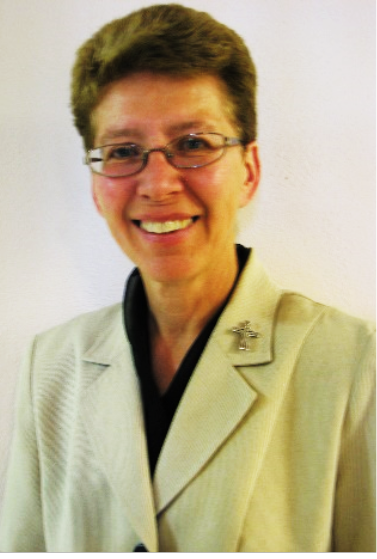- By Sr. Mary Valerie Schneider
During Advent the Church celebrates three comings of Christ: the historical coming of Jesus Christ born 2000 years ago (Memory), the Second Coming (Majesty), and his coming into our lives now (Mystery). Manger scenes, Christmas trees, pageants, and Advent calendars remind us of His first coming. The Second Coming stays
- By Sr. Mary Valerie Schneider
Today’s readings speak of a feast of rich food and choice wines (Isaiah 25) and people eating their fill (Mt. 15). I love the images of food—the choice foods in Isaiah, but even loaves and fish can taste mighty good. The readings suggest that the material world has a spiritual
- By Sr. Mary Valerie Schneider
Sprouting, blooming, blossoming: words of hope and growth, words of new beginnings from old realities. The universe is 14.8 billion years old, but it’s still not finished. Advent is a time to realize the universe is still coming into being. The purpose of creation has yet to be fulfilled.
- By Sr. Mary Valerie Schneider
“The mountain of the Lord’s house shall be established as the highest mountain. . . . All nations shall stream toward it.” (Isaiah 2) Once I had a dream about the Second Coming. Everyone was coming from all directions to climb a large grassy hill. Smiling and chuckling, people of
- By Sr. Mary Valerie Schneider
“Kind words can be short and easy to speak, but their echoes are truly endless” (Mother Teresa). Do you remember some kind words spoken to you years ago? Perhaps they changed your outlook and attitude, or even the direction of your life. Today is an opportunity to speak or
- By Sr. Mary Valerie Schneider
Pope Francis has written in Laudato Si, “Because of us, thousands of species will no longer give glory to God by their very existence, nor convey their message to us. We have no such right.” I never before thought of denying God God’s rights. God has created millions of species
- By Sr. Mary Valerie Schneider
While media can “shield us from direct contact with the pain, the fears and the joys of others and the complexity of their personal experiences,” (Laudato Si), if produced with compassion, television programs give us the personal side of major events, whether disasters or triumphs. We see the smiles of
- By Sr. Mary Valerie Schneider
Visitors from California to Toledo, Ohio, are amazed at all the green. Back home they are paid not to have a lawn. The Californians were thrilled to learn that it would rain during their stay, for rain had not splashed on their faces in months. While we Ohioans bemoan “rain
- By Sr. Mary Valerie Schneider
Pope Francis has written, “Because all creatures are connected, each must be cherished with love and respect, for all of us as living creatures are dependent on one another.” On a perfect day I walked a couple miles through a metropark. Twice I saw a single deer on the path.
- By Sr. Mary Valerie Schneider
Living near construction I hear backup beeps constantly. All other warnings are in front of us, making us aware of something in the future. A backup beep is a warning in reverse, a warning that something is going backwards. What if we could back up our thoughts and hear a




